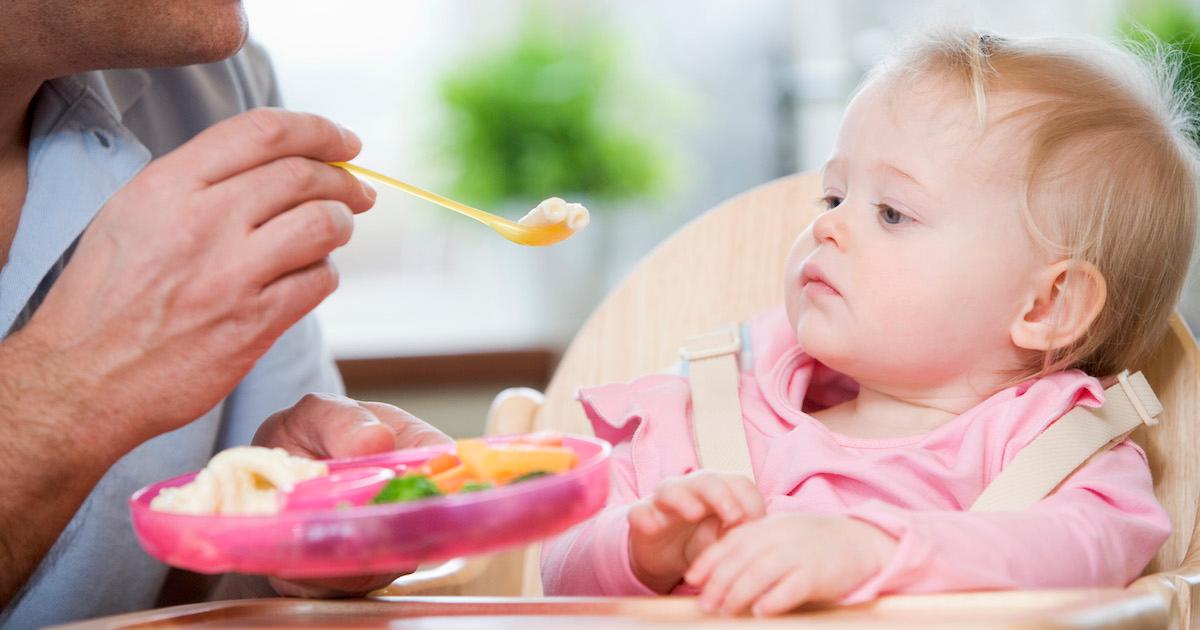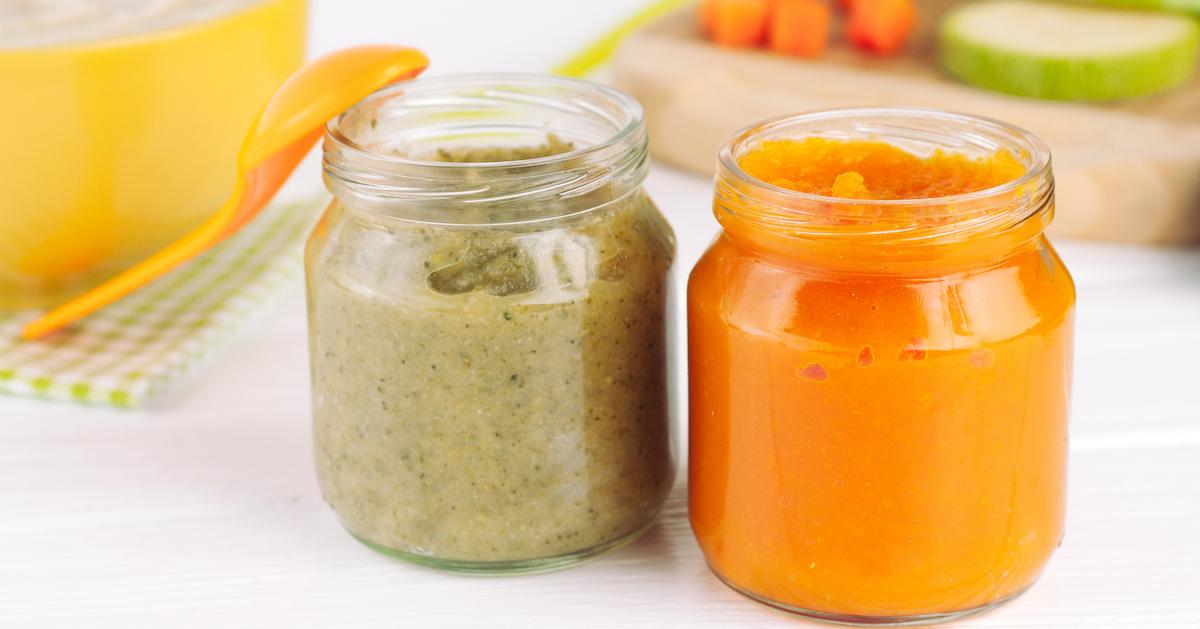How to Avoid Toxic Heavy Metals in Baby Food
Updated June 28 2023, 10:54 a.m. ET

Every now and then, a new report about heavy metals potentially contaminating baby food will circulate, prompting parents and caregivers to panic. However, there's no need to worry as we're here to guide you on finding baby food without heavy metals for your children.
But first, we'll be going through a few significant reports on baby food — including one published in June 2023, that found that certain heavy metal levels in baby food are actually declining.
Keep reading for the details on this research, and researchers’ best advice for avoiding toxic metal exposure.

Heavy metals may be decreasing slightly in baby food.
In June 2023, Consumer Reports published a report, which included findings that the concentration of arsenic, cadmium, and lead in baby foods seems to be decreasing.
The report also found that despite this decrease, the overall risk of heavy metal exposure in baby food has remained largely unchanged between 2018 and 2023.
For the report, CR retested seven baby foods that were tested in 2018, and all had concerning levels of heavy metals then. In 2023, CR found that heavy metals declined in three of those products, but declined in three other products.
So basically, the changes cancel each other out, according to Dr. James E. Rogers, CR’s director of food safety research and testing.
“In some of the products, declines in certain heavy metals were offset by increases in others, so there was little change in the amount of the foods babies could eat," Dr. Rogers said in a statement. "And we still found worrisome levels in foods that our last tests showed to be the most concerning, namely rice, sweet potatoes, and snack foods.”
Another report found that heavy metals are just as likely to be in homemade and store-bought baby food.
Healthy Babies Bright Futures (HBBF) is a science-led organization that works to reduce babies’ exposures to neurotoxic chemicals. A report released by the organization in August 2022 involved conducting lab tests comparing homemade baby food to store-bought baby food, in pursuit of detecting the presence four specific toxic heavy metals: inorganic arsenic, cadmium, lead, and mercury.
According to Healthy Children, being exposed to toxic metals is worse for children than adults as it can cause brain development issues, including issues related to behavior, cognition, and learning.
Overall, HBBF tested 288 foods commonly served to babies, along with data from more than 7,000 previously published food studies.
The HBBF scientists found that homemade baby purees and store-bought baby food were just as likely to be contaminated with at least one or the four tested toxic heavy metals. In fact, they found that 94 percent of both homemade and packaged baby foods were contaminated.
"We found no evidence to suggest that homemade baby foods made from store-bought produce are better than store-bought baby foods when it comes to heavy metal contamination," stated co-author Jane Houlihan, HBBF’s Research Director, as per CNN.
HBBF found that the 10 most heavily contaminated foods ordinarily eaten by babies (in order from highest to lowest concentration) are: rice cakes, crisped rice cereal, rice-based puffs, brown rice, rice-based teething biscuits and rusks, white rice, raisins, teething crackers (non-rice), granola bar with raisins, and oat-ring cereal.
Basically, rice-based baby foods are most heavily contaminated, typically with inorganic arsenic.
Of the 288 foods tested, the authors found that the 10 least contaminated foods consumed by babies (from lowest to highest concentration) to be: bananas, grits, baby food brand meats, butternut squash, lamb, apples, pork, eggs, oranges, and watermelon.

Baby food without heavy metals: Here’s how to avoid exposing your child too much.
The authors of the study stress that when it comes to foods that tend to contain heavy metals, you should vary the sources and brands of these foods.
“Parents shouldn’t have to worry about the safety of their babies’ meals and snacks, but until the FDA sets protective limits, the good news is that parents can skip and swap out certain foods to limit toxic chemical exposures,” Houlihan stated.
The authors recommend avoiding feeding your baby rice cakes, crisped rice cereal, rice-based puffs, and brown rice too often. HBBF recommends that when serving rice to your child, cook it like you would pasta, in extra water, and then drain the water. The group also recommends choosing basmati rice from California; white rice over brown; and adding other grains to your rotation, such as quinoa or farro.
As for foods for which you don’t need to worry about metal contamination, they recommend feeding your child:
Fruit (fresh or frozen, but not canned)
Baby food brand fruits
Green beans
Peas
Butternut squash
Chilled, peeled cucumber
Frozen bananas
Meat (either baby food brand, or soft or pureed and home-cooked)
Beans
Eggs
Infant formula
Unsweetened applesauce
Cut grapes
Yogurt.
The researchers also shared a number of additional tips to avoid exposing your child to too many metals through their diet. For one thing, vary their diet, and mix up what you serve every day; make sure to never skip meals, and to regularly feed your child snacks, as skipping meals has been correlated with higher blood lead levels in children; ask your doctor about your baby’s iron levels; and make sure to always thoroughly wash produce.
For parents and caregivers, you can download HBBF’s two-page tip sheet for more tips on avoiding toxic metal contamination.
In January 2023, the FDA issued new lead recommendations for baby food, which is something that organizations like CR and HBBF have been campaigning for for years. However, experts were not satisfied with the FDA's recommendations. In an interview with CNN at the time, Houlihan pointed out that “Nearly all baby foods on the market already comply with what they have proposed.”
Clearly, the FDA and our food system have a long way to go when it comes to protecting our babies from heavy metal exposure.
This article, originally published on Aug. 11, 2022, has been updated to include new research and FDA guidance.